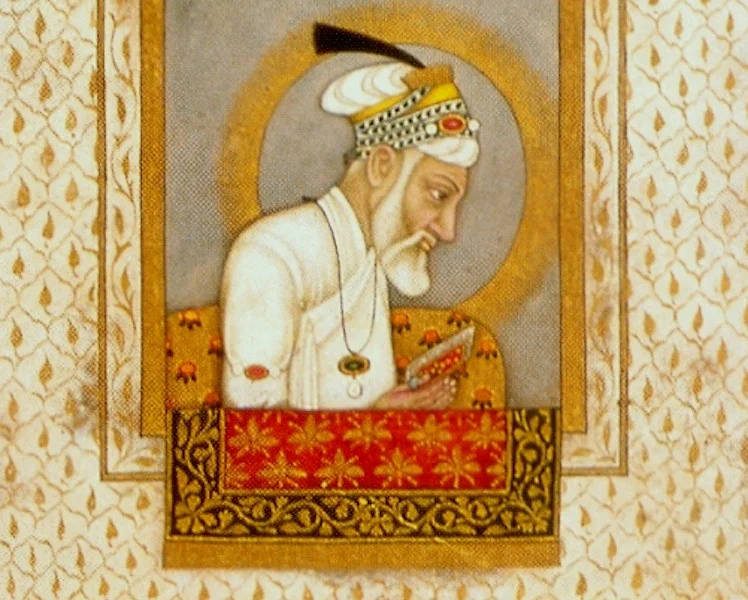Aurangzeb’s letter written to his religious teacher encapsulates story of remorse due to bigotry


Aurangzeb, the sixth Mugal Emperor, is well known for his assaults on non-believers and the destruction of thousands of Hindu temples accross India. Recently, Aurangzeb’s name came up during the Gyanwapi survey as the the Gyanwapi mosque was built by Aurangzeb after demolition if ancient Kashi Vishwanath temple.
Aurangzeb’s unrelenting, merciless onslaught against non-believers, inspired by the senseless pursuit of a religious theory of monotheism, was not part of his journey to conquer the westside, but it had been instilled to him since childhood.
In an extraction from the book “Maharanas: a thousand year war for Dharma”, Col. James Tod quotes a letter written by Aurangzeb to his religious teacher, Mulla Saley, in CE 1684, in which Aurangzeb is enraged with his teacher for turning him into a religious bigot instead a liberal man. Tod claims that Francois Bernier was present when the letter was written.
Aurangzeb writes:
“You told my father Shahjahan that you would teach me philosophy. This is true, I remember very well, that you have entertained me for many years with airy questions of things that afford no satisfaction at all to the mind, and are of no use in a humane society, empty notions and mere fancies, that have only this in them, that they are very hard to understand and very easy to forget, which are only capable to tire and spoil a good understanding and to breed an opinion that is insupportable.”
“I still remember that after you, but amused me, all I retained of your philosophy was the multitudes of barbaric and dark words, proper to bewilder, perplex and tire out the best wits, and only invented the better to cover the vanity and ignorance of men like yourself, that would make us believe that they know all and that under those obscure and ambiguous are hid great mysteries which they alone are capable to understand.”
He then goes on to criticise his lack of exposure to a more liberal and joyful worldview as a result of his teachings. It’s almost as if Aurangzeb is discussing the wisdom of the Gita and Upanishads, which he was most likely introduced to by his brother Dara Shikoh when he was a boy.
“If you had seasoned me with that philosophy which forms the mind to ratiocination (perhaps rationality) and insensibly accustomed it to be satisfied with nothing but solid reason, if you had given me those excellent precepts and doctrines which raise the soul above the assaults of fortune and reduce her to an unshakeable and always equal temper, and permit her not to be lifted up by prosperity, nor debased by adversity.”
“If you had taken care to teach me what we are and what the first principles of things are, and aided me in forming in my mind a proper idea of the greatness of the universe and the admirable order and motion of its parts; if, I say, you had instilled this kind of philosophy into me, I would think myself incomparably more obliged to you than Alexander was to his Aristotle; if, I say, you had instilled this kind of philosophy into me,
This letter is sufficient evidence that Aurangzeb saw the emptiness of his beliefs.
When he witnessed the Maharanas and the people of Mewar’s heroism and fortitude in fighting and dying for Hinduism, he was forced to reflect on if there was a greater ideal for which Hindus were willing to die. Maharana Raj Singh, Chhatrapati Shivaji Maharaj, Sri Guru Gobind Singh Maharaj, Veer Durga Das, and others may have shown him the mirror that it wasn’t just Islam that evoked religious fervour, but also Hinduism.
However, if Hinduism only generated emotion in times of crisis and as a matter of choice, Aurangzeb’s passion was an uncontrollable, thoughtless, and constant agony of his being.
Aurangzeb even goes so far as to blame Mullah Saley’s teachings for his violent nature stating that “instead of flattering” him “have taught something about that point so important to a king, namely, what the reciprocal duties of a sovereign to his subjects are”, and “what the reciprocal duties of subjects to their sovereign are.”
Note: The excerpt has been taken from the book Maharanas: a thousand year war for dharma written by Omendra Ratnu
DISCLAIMER: The author is solely responsible for the views expressed in this article. The author carries the responsibility for citing and/or licensing of images utilized within the text.
